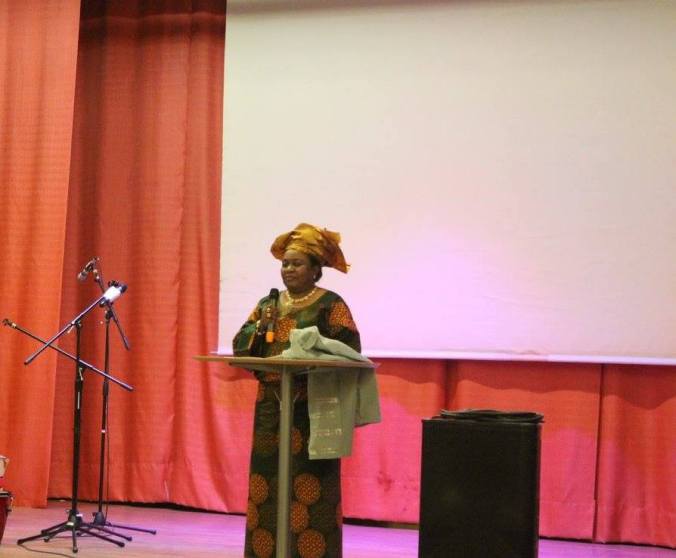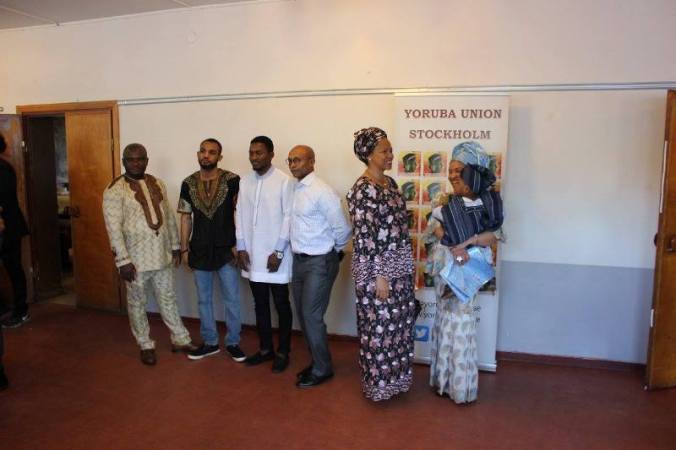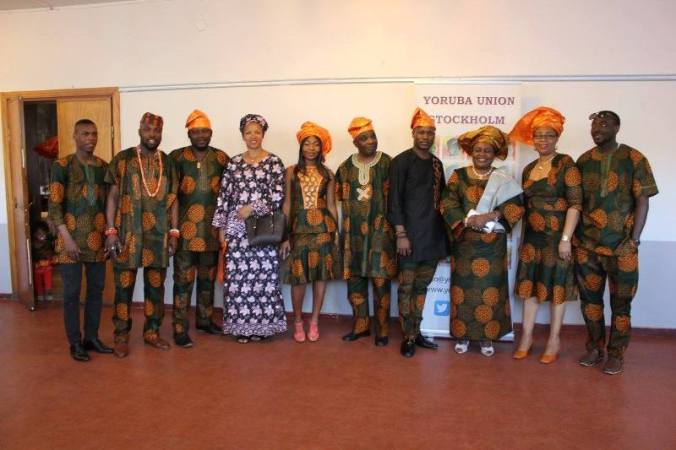The Madrilenian and other musings of Adeola will provide a delightful read. The book is a collection of short stories and essays.
The Madrilenian And Other Musings of Adeola
By Adeola Aderounmu

The Madrilenian and other musings of Adeola
The Madrilenian and other musings of Adeola is a collection of short stories and essays. The titles in the book are:
No Love Lost
The Madrilenian
The Dream
The Kings Are Mad
The African Woman
Why Men Should Cook
Paying It Forward
Spanish Lullabies
No Love Lost is a story of a young lady, Lucy, who seemed to have all a young woman could dream of. However there was a vacuum in her life because she has not experienced true love.
One rainy day, she met a young man named Paul whose presence in her life became a stimulant to finding her way. In the end it was a twist of fate for both Lucy and Paul. While Lucy eventually found love, Paul’s relationship with his long term girlfriend-Stella, hit the rock.
The Madrilenian was about a boy who had a troubled childhood. Pablo lived together with his parents and 3 elder sisters in Catalonia. He didn’t get along well with his family at home and he was an introvert at school. Fortunately his social problems did not affect his academic progress, so he was able to get on with his life and later on worked as an engineer in Girona.
The Madrilenian took a dramatic twist when Pablo at about aged 30, went to Moscow on holiday. A new character who would change Pablo’s life forever appeared in the script. The Madrilenian is a story of love, hope and determination.
In The Dream I took my readers into the life of a young man called Olawale. He had a dream. But when he woke up, he had forgotten the dream. So he was very upset and unsettled for about a week or so.
How did he remember the dream? Well, he took a long, quiet walk in the forest. He went close to nature and nature revealed to him what his dream was all about. He also found a letter in the forest and in it he found out some of the basic secret of life.
The Kings Are Mad is a story where I tried to find a way to draw attention to some of the problems in Nigeria. The story can as well be a setting in any troubled African country where the economic fortunes have dwindled over the years especially after obtaining independence from the colonialists.
There were 3 major characters in The Kings Are Mad. Mama Esan is a typical trader in Oshodi whose children are out of school because her husband had been jobless for more than half a decade. She became troubled because she had no permanent place to sell her wares and the downturn in the economy destroyed her business.
It was a similar fate for Chinedu who came from the East to seek better fortunes in the West. In the beginning, things were rosy and bright. But since 1993, things have taken a turn for the worse and he could hardly take care of his family. He was divided in his thoughts-whether to go back to his village or to do illegal business to patch his wretchedness.
The third main character in The Kings Are Mad was Bawa. His family was involved in business and this took him to the West quite frequently. Sadly he found his way to the terror network.
In the end he became a confused man because he misunderstood the difference between religion-which is a man’s relationship with his creator and fighting for freedom-which is man’s relationship to his existence.
In The Kings Are Mad, we saw rulers who didn’t care about the people. They took the people for granted. We saw a people, culturally diverse and also divided in opinions so much that they did not know how to wrestle power from the greedy elites. They-the people-do not yet know how freedom tastes.
The African Woman is a chapter dedicated to the true Nigerian woman. She could also have been any other woman from any part of Africa who despite the challenges that she faced daily still managed to take care of the children and keep the house running.
The African Woman becomes even more relevant against the recent denigration of women by the Nigerian lawmakers who have refused to uplift the status of women in the country. It is about time women are given the same rights as men in Nigeria and in fact all over the world.
Personally, l wish more women would understand the need for them to stand up, unite and fight for what is theirs because in a country like Nigeria especially, freedom and rights will not be served on a platter of gold.
In continuation of the plights of women, l wrote Why Men Should Cook to clamour for support for the family as the most important unit in any society. In many African settings and even as a result of distortion of both culture and religion, many people still think that a man is a strange object in the kitchen.
Why Men Should Cook emphasized the importance of taking turns in the kitchen and how such a hobby/role can actually help a man to find peace with himself and his family. The chapter also argued for the benefits of family planning and planned parental leave.
Paying It Forward is an essay about how to start and pay forward good deeds. In the Swedish society and even in any society at all, it is quite easy to stereotype people. Here l told a few stories of how people have paid forward or appreciated good deeds.
The human race would have less problems and almost no worries if people live their lives with due consideration to the rights and happiness of other people around them
The last chapter in the book is Spanish Lullabies. It is a story of how racism has eaten deep into the Spanish society. In the 1960s or even up to the 90s, Spain may have been the haven for Africans seeking to settle outside the African or American continents.
But things have changed and Africans have been wrongly stereotyped, not only in Spain but in many places around the world. So there are limited opportunities for Africans in the Diaspora generally.
The Spanish Lullabies highlights the plights of some Africans in Spain and how their dreams have been dashed because of racism. Is it a coincidence or a direct consequence of this hatred for the African race that Spain and even Italy are among the worst economies in Western Europe?
In general the book-The Madrilenian and other musings of Adeola-should provide a delightful read. The book will be officially launched in Sweden on June 18, 2016.
A release is planned for Nigeria later in the year and the book will be available on Amazon Kindle amongst other planned E-book release.
May the glory of Nigeria come, soon!
May the human race keep walking the earth, shoulders high!















